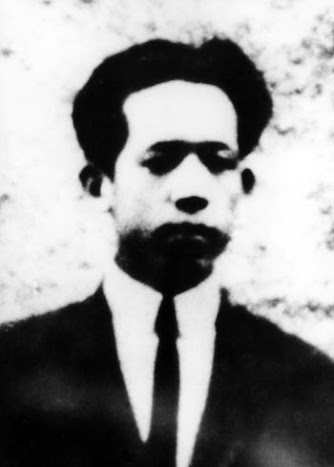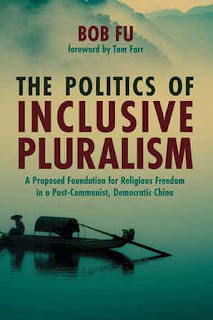(ChinaAid, Midland, TX—Feb. 17, 2021) More than 50 years ago, during a national conference on religious affairs held 4 June 1958, Li Weihan [the first principal of China’s the Central Party School of the Communist Party, the highest training center for party workers and leaders] clearly articulated the true intention of the CCP’s religious policy:
The freedom of religious belief policy is a revolutionary motto. We have adopted this motto and must enlarge its revolutionary content to end feudalism and prevent exploiting classes from forcing others to believe in religion. If we thoroughly implement this motto, believers will gradually change from believing in religion toward non-believing. In short, the freedom of religious belief policy is our Party’s basic policy towards religion. We can adopt only this policy, not any other policy.*
Bob Fu, founder and president of ChinaAid, asserts:
The intent of the CCP appears to be to prevent the spread of religion. In the early 1990s, in addition to attempts to decrease the influence of foreign political entities utilizing religion for their own ends, Chinese authorities increased their efforts to stop the infiltration of foreign religious organizations. …in recent years the CCP has increasingly invested more resources into controlling religions and intensifying atheist propaganda.According to Human Rights in China (HRIC), a Chinese non-governmental organization, as of mid-2014, in direct contrast to the true intention of the CCP’s religious policy as attested by Li, China has aligned with the following six UN human rights treaties, listed by order of ratification:
1. Convention on the Elimination of All Forms of Discrimination against Women.
2. International Convention on the Elimination of All Forms of Racial Discrimination;
3. Convention against Torture and Other Cruel, Inhuman or Degrading Treatment or Punishment.
4. Convention on the Rights of the Child.
5. International Covenant on Economic, Social, and Cultural Rights.
6. Convention on the Rights of Persons with Disabilities.**
As of February 2016, no change of status has transpired regarding these treaties in relation to China. In addition to China’s façade of allocating support for the above six UN human rights treaties, other reasons for my conviction that the CCP’s religious policy model is unjustifiable in principle regarding the protection of religious freedom include the following:
- The State fails to adhere to its own or international guidelines regarding freedom of religious belief.
- A contradiction exists between the principles of China’s constitution and religious regulations, including Party- or State-issued secret documents.
- A contradiction exists between China’s signed pledges and those signed through unratified international obligations regarding human rights and religious freedom protections.
A major contradiction exists within China’s constitution between the State’s constitutional guarantee of freedoms and the CCP’s autocracy rule, embedded in the preamble of the constitution in the rule of law or rule by law. Another contradiction is that the CCP designated certain groups as exempt from religious freedom, including members of the CCP, the Communist League, and Young Pioneers, and military service personnel and civil servants. An additional contradiction is that the CCP also legitimized religious discrimination in employment by excluding nonatheistic citizens.***Considering these contradictions, I question how the State’s philosophy can be justifiable when it routinely and robotically contradicts itself. My rationale for arguing that the CCP’s religious policy model proves unsustainable in practice regarding China protecting religious freedom includes the following reasons:
1. China currently experiences a critical dilemma regarding its inability to enforce specific laws. Although unregistered religious organizations are considered illegal in status, the State must tolerate most of these groups because the CCP cannot jail the millions of dissidents belonging to them.2. Conflicts of interest exist between central and local government due to tension between the central government’s goal for political control and local government’s desire to maintain economic development and social stability.3. Controls on religion, such as suppressing the religious freedom of minorities, will neither protect national security nor fight religious extremism or terrorism.
Instead, these efforts have proved counterproductive by further fueling and aggravating more tensions and conflict: for example, crackdowns on Tibetan faithful and Uighur Muslims, accusing some of inciting rebellion and charging them on counts of separatism and terrorism. The banned Falun Gong’s international fight, despite a bloody crackdown by the CCP, is another counterproductive example in relation to religious freedom in China.
Considering the myriad of blatant conflicts in relation to the CCP’s attempts to control religion, I question how the State’s practices can be sustainable when the interpretations and enforcement of laws prove unstable as they are subject to diverse understandings by numerous officials, which in turn nullifies attempts to sustain them.
China’s policies which Principal Li supported in 1958 clearly contradict the myriad of evidence that suggests freedom, not repression, promotes a more peaceful, prosperous, and perdurable society. Particularly, religious freedom….****
* Weihan, “Guangyu minju gongzhuo,” 520–81.** Human Rights in China. “Although China signed on to the International Covenant on Civil and Political Rights (ICCPR) on October 5, 1998, it has yet to ratify it. As such, China is not yet bound to the specific provisions of the ICCPR.”*** Human Rights Watch.**** Excerpt from the new book by Bob Fu, Ph.D., —The Politics of Inclusive Pluralism: A Proposed Foundation for Religious Freedom in a Post-Communist, Democratic China.
ChinaAid Media Team
Cell: +1 (432) 553-1080 | Office: +1 (432) 689-6985 | Other: +1 (888) 889-7757
Email: [email protected]
For more information, click here

